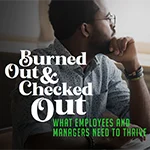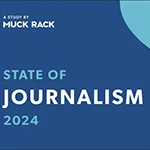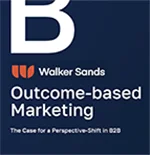People make decisions based on emotions ,not fact-based evidence, Chris Graves, Ogilvy chairman, told the Arthur Page Society spring conference today in New York.
The Ogilvy executive talked about the "backfire effect," which causes people to become more entrenched in their own viewpoints when challenged by facts contrary to their beliefs.
The more educated the group, the more polarized they become, said Graves.
He gave climate change and the "vaccine wars" as examples where people cling to positions despite overwhelming evidence that shows they are out-of-step.
.@CGraves in full flow @awpagesociety #PageSpring. Always a great presenter. pic.twitter.com/7PijogiXjl
— Aedhmar Hynes (@Aedhmar) April 10, 2015
Research shows the human brain expresses puzzlement and then triggers physical pain when a person is not aligned with his group.
The brain reacts favorably when presented with an image of a supported politico and registers disgust when an opposing candidate is presented.
Graves said even though a person's preferred candidate does a "flip-flop," he or she would get a free pass from a political backer.
The Ogilvy chairman said "narration transport" or creating a social norm supporting the desired behavior is a path to change.
Kit Yarrow, Golden Gate University professor emeritus, shared the stage with Graves.
She described how words or "blah-blah" messages have little effect on today's consumers, who are self-reliant and want to be admired by marketers.
Messages need to be short, simple, frequent and ubiquitous, according to Yarrow.
The presentation was called "Know Thy Consumer: Implications of Behavioral Economics for Corporate Communications."


 Consumers who once demanded convenience now require consistent, multi-channel experiences that cater to them at every point. Brands must have a clear, audience-appropriate, and channel-specific voice across all platforms.
Consumers who once demanded convenience now require consistent, multi-channel experiences that cater to them at every point. Brands must have a clear, audience-appropriate, and channel-specific voice across all platforms. Employees at U.S. companies are experiencing high levels of burnout, but managers are lagging behind when it comes to their awareness of the problem
Employees at U.S. companies are experiencing high levels of burnout, but managers are lagging behind when it comes to their awareness of the problem Brand has a powerful effect on a company’s valuation, but the level of brand understanding in the investment community leaves a lot to be desired, according to a new study from Brodeur Partners, Interbrand and NewtonX.
Brand has a powerful effect on a company’s valuation, but the level of brand understanding in the investment community leaves a lot to be desired, according to a new study from Brodeur Partners, Interbrand and NewtonX. AI may still be viewed with a wary eye by most media pros, but its use is growing, according to a new study from Muck Rack.
AI may still be viewed with a wary eye by most media pros, but its use is growing, according to a new study from Muck Rack. A new study from Walker Sands says that some marketers have been putting the cart before the horse when it comes to the relationship between marketing channels and business outcomes.
A new study from Walker Sands says that some marketers have been putting the cart before the horse when it comes to the relationship between marketing channels and business outcomes.


 Have a comment? Send it to
Have a comment? Send it to 
No comments have been submitted for this story yet.